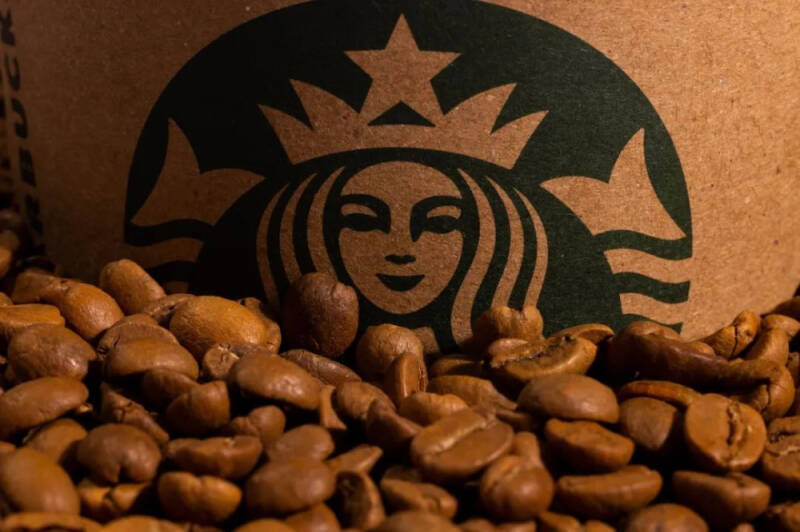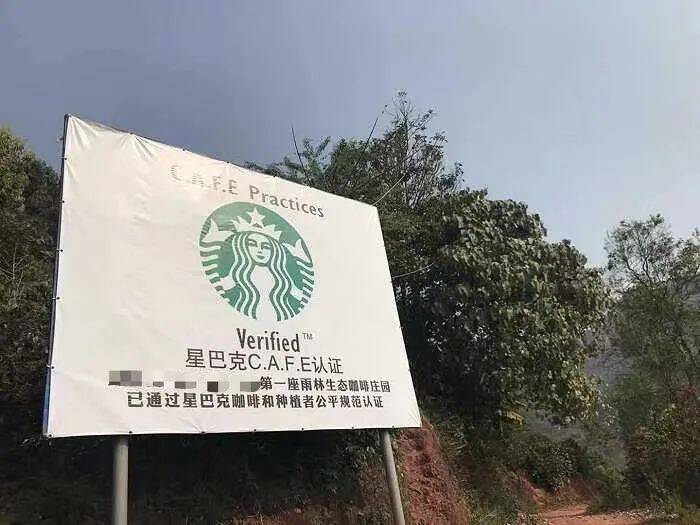The consumer team sued Starbucks' claim for "100% ethical procurement" in coffee producing areas.
A prominent U.S. consumer rights group, the National Consumer League (NCL), filed a lawsuit against Starbucks Coffee Company in the District of Colombia Superior Court, accusing Starbucks of deceptive claims about ethical coffee purchases, consistently marketing consumers 'preferences for ethically purchased products, and failing to adequately address a series of documented labor abuses in the green coffee supply chain. It is also alleged that Starbucks 'internal sustainability certification program, C.A.F.E. Practices, failed to prevent child labor, forced labor and other abuses. and highlighted the marketing phrase "100% ethical sourcing" on its roasted and packaged coffee products.

Sally Greenberg, chief executive of the National Consumers League (NCL), said investigative journalists and government officials had found extreme abuse in farms and cooperatives that supplied Starbucks with coffee and tea over the past decade. These abuses range from Brazil to Guatemala to Kenya. Starbucks had every opportunity to correct its ethical purchasing practices and update its C.A.F.E. practice standards, but Starbucks failed to do so and made its commitment to ethical purchasing a key part of its brand identity and marketing.
Back in 2015, Starbucks claimed for the first time that it was 99 percent ethical in its coffee supply chain. Starbucks 'purchase criteria for coffee beans from farms is the C.A.F.E.(Coffee Drinking Farm Equity) practice plan, according to reports. The standard was developed in partnership with Conservation International and SCS Global Services, an independent third-party certification company. The standard includes four categories: product quality, economic accountability, social responsibility and environmental leadership. And the program uses a point system to obtain points for complying with indicators, with a total of 185 indicators. Smallholder farmers and some cooperatives occupying less than 12 hectares receive points on these indicators, and suppliers must comply with mandatory "zero tolerance" targets. If the score and indicators meet the standard, you will receive an additional bonus of increasing the price of green coffee beans shipped.

"Zero tolerance" indicators include child labour, forced labour and discrimination. However, the NCL lawsuit cites numerous reports of alleged labor abuses in Starbucks 'coffee and tea supply chain, including a 2023 report by Repórter Brasil, a Brazilian journalist network, which found labor violations at four coffee farms that complied with the C.A.F.E. program, including certified coffee farms in the Brazilian state of Minas Gerais. But Starbucks isn't the only company facing allegations of labor abuse within its supply chain. In Brazil alone, Repórter Brasil, a Brazilian journalist network, exposed alleged abuses by coffee suppliers such as Nestle and McDonald's.
Starbucks responded that it was aware of the lawsuit and planned to "defend claims that Starbucks misrepresented its ethical purchasing commitments to consumers." Starbucks said it takes such allegations very seriously and is actively engaged with farms to ensure they meet standards. Each supply chain needs to be revalidated periodically, and Starbucks remains committed to working with business partners to meet the expectations detailed in Starbucks 'Global Statement on Human Rights.
Important Notice :
前街咖啡 FrontStreet Coffee has moved to new addredd:
FrontStreet Coffee Address: 315,Donghua East Road,GuangZhou
Tel:020 38364473
- Prev

Why is there always citrus in the flavor description of light roasted coffee?
Fruit acid, flower fragrance, as the iconic flavor of medium-shallow roasted coffee beans, are deeply loved by people. A few days ago, a friend who is keen on sour coffee asked Qianjie why the flavor descriptions of your shallow baked beans are not so different, and they all seem to have "citrus" on them. Why is this? if people choose coffee beans
- Next

Brazil coffee producing area, coffee history, coffee bean species, Brazil queen estate coffee beans introduction
Brazil is the largest country in South America, bordering Uruguay, Peru, Bolivia, Colombia and other ten countries. Brazil's coffee industry is developed. Brazil is the country with the largest coffee production and export volume in the world, and its coffee export volume accounts for one third of the world's coffee exports. But coffee is not native to Brazil.
Related
- What grade does Jamaica Blue Mountain No. 1 coffee belong to and how to drink it better? What is the highest grade of Blue Mountain coffee for coffee aristocrats?
- What are the flavor characteristics of the world-famous coffee Blue Mountain No. 1 Golden Mantelin? What are the characteristics of deep-roasted bitter coffee?
- Can I make coffee a second time in an Italian hand-brewed mocha pot? Why can't coffee be brewed several times like tea leaves?
- Hand-brewed coffee flows with a knife and a tornado. How to brew it? What is the proportion of grinding water and water temperature divided into?
- What is the difference between Indonesian Sumatra Mantinin coffee and gold Mantinin? How to distinguish between real and fake golden Mantelin coffee?
- What does bypass mean in coffee? Why can hand-brewed coffee and water make it better?
- Unexpected! Ruixing Telunsu lattes use a smoothie machine to foam milk?!
- % Arabia's first store in Henan opens into the village?! Netizen: Thought it was P's
- Does an authentic standard mocha coffee recipe use chocolate sauce or powder? Mocha Latte/Dirty Coffee/Salty Mocha Coffee Recipe Share!
- What is the difference between Vietnam egg coffee and Norway egg coffee? Hand-brewed single product coffee filter paper filter cloth filter flat solution!

